by Leah Gorham, MAMFC, LPC
Welcome again to the third installment of the Child Abuse Awareness Blog Series. The past few weeks, I’ve been writing about parenting perspectives that can help us maintain our own sanity while meeting the needs of our children – with the ultimate goal of reducing child abuse. As I mentioned in the previous two posts, Dr. Kayrn Purvis utilized the TBRI® (Trust-Based Relational Intervention®) approach with the families she worked with. In the last two posts, we talked about empowering children to thrive in their environment and the importance of connecting with them. As parents, it’s also important to understand the significance of nurturing ourselves through self-care.
As any parent will know, discipline and correcting a child’s poor decisions is a daily challenge. Starting when they are young can help build a foundation for when children turn into teenagers and later into adults. Proactive strategies of teaching children good decision making skills when they are calm can be productive. I have found that I can think and speak more clearly when I am in a calm state of mind. To get there, I need to take deep breaths to refocus myself. While it takes extra time to refocus and calm down, it also keeps me from growing frustrated and having heated arguments in which I could say (or do) something I would later regret. As adults, we need to model this for children.
The goal for correction actually goes back to that of connection (remember from last week). This is a basis for all relationships – we have a deep need to feel connected with one another. I had a minister from my childhood who would always say, “Rules without relationship will lead to rebellion.” If there’s not the foundation of a relationship enabling the child to feel connected, it will be difficult to discipline and correct the poor behavior.
When you’re connected with your child, you can more easily discover the meaning behind the behavior. How many times have you found yourself scratching your head asking yourself, “Why is my child acting this way?” Don’t worry – it happens to all of us. Dr. Dan Siegel, MD (who wrote The Whole Brained-Child with Baylor graduate Dr. Tina Payne Bryson, PhD) encouraged parents to chase the why behind the child’s reactions. The more connected you are with them, the more you notice their habits, patterns, and even struggles.
There are four questions you can ask yourself following their poor behavior. The first one is “What is the behavior really saying?” We sometimes display anger despite underlying emotions of fear, embarrassment, sadness, etc. Poor behavior can often be a way to get the attention of others. As I tell many families, even negative attention is still attention. Could this behavior be correlated to a past traumatic experience that the child needs additional support for instead of just discipline? When we’re connected with our children, we learn what their triggers are and we are able to help them recognize and avoid them if possible. If we can discover the what of their behavior, it can lead to the why.
The second question is “What does my child really need?” Does your child need a healthy snack or glass of water? If the child is crying out for attention, they may need a hug or our good eye contact to help them calm down. Does your child feel unsafe and need reassurance along with calming techniques? Like before, trying to discover what the child needs is important and comes from lots of connectivity.
Another question is “How can I teach my child to get their needs met?” This is an important step because teaching our kids how to get their needs met is vital as we strive to discourage the misbehavior. Utilizing good connection through eye contact shows that we are listening to them. Lowering our tone of voice is helpful because using our angry or loud voice will likely make the situation worse. While slowing down our speech pattern is not usually a problem in Texas, some of us are from areas where fast talking is normal. Kids can struggle with this. By slowing down our speech, we can think more clearly. Doing all of these things can help to diffuse many stressful situations.
The final question to ask ourselves is “When is a good time to teach them this skill while they are calm?” It is often easy to jump to correcting our kids in the heat of the moment, yet this is not always the best time to teach them. In that heated moment, children can understand your anger to be against them personally instead of against their poor choices. Think of a good time when everyone is calm and able to think clearly – this is an ideal opportunity to discuss the behavior. Brainstorm with your child (depending on their developmental level) on the best way to strive to teach skills proactively before they occur or little while after they occur, when feelings of anger and angst have left.
These four questions are great tools for discovering reasons why children are misbehaving. There can also be logical consequences for their actions, too. I am still encouraging parents to appropriately discipline children (because we all need structure), yet understanding the rationale and exploring underlying emotions could help resolve future issues. Consider the child’s developmental ability – is what you’re asking too much for their developmental stage? Sometimes we want to kids to grow up too fast by placing expectations that are too high and unrealistic. On the flip side, setting expectations that are too low isn’t something that helps our children learn and grow. Our main goal of TBRI® is to encourage children to ask for what they want rather than throwing a temper tantrum. It is okay for a child to be disappointed in not getting what they desire. It is okay to verbalize that disappointment in a calm, respectful tone. But is not okay to throw a fit in anger over the disappointment.
The past few weeks, I’ve discussed three concepts (empower, connect, and correct) from TBRI® that help decrease child abuse and increase parent-child relationship. There is much more than can be covered in addition to what we’ve discussed here! If you want more information, feel free to reach out to STARRY (254-399-6552), as we offer free counseling for children and families. We will also be offering a Nurturing Parenting class this summer in the evenings that utilizes some of these principles. If you desire something during the day, MCH Family Outreach is a great resource. (And they love TBRI® as much as we do!) STARRY’s main objective is to nurture children, strengthen families, and restore hope. We strive to decrease child abuse and we hope you will stand with us in bringing hope to the next generation in the Waco area.
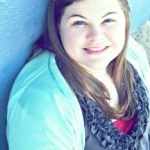 Leah Gorham, MAMFC, LPC, is the Team Lead at the STARRY-Waco Counseling office that offers free counseling for children and families. She has been a Kid’s Hope Mentor for the past five years and is currently part of Leadership Waco.
Leah Gorham, MAMFC, LPC, is the Team Lead at the STARRY-Waco Counseling office that offers free counseling for children and families. She has been a Kid’s Hope Mentor for the past five years and is currently part of Leadership Waco.
The Act Locally Waco blog publishes posts with a connection to these aspirations for Waco. If you are interested in writing for the Act Locally Waco Blog, please email [email protected] for more information.
By Rolando Rodriguez Soto
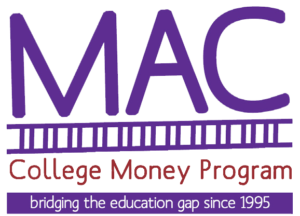 For over 20 years, the MAC College Money Program, a program of Waco Foundation, has played a significant role in the Waco community to advocate for the attainability of a college education for all McLennan County students regardless of their financial situation.
For over 20 years, the MAC College Money Program, a program of Waco Foundation, has played a significant role in the Waco community to advocate for the attainability of a college education for all McLennan County students regardless of their financial situation.
The MAC Grant, offered to low-income McLennan County high school students, pays for tuition up to $1,000 each semester at either McLennan Community College or Texas State Technical College if other financial aid is not enough to cover tuition.
The deadline for the MAC Grant is May 1st, and you must apply during your senior year of high school. You can find the application on our website or with your high school counselor.
Once accepted into our program, students are then eligible to apply for the MAC 3rd and 4th Year Transfer Scholarship of $5,000, which can be used at any four-year college. Even if you are not planning to attend MCC or TSTC, the MAC Grant could mean a scholarship opportunity later on in your college career, but you have to apply for the MAC Grant as a senior in high school to be considered.
Every year, we welcome over 500 students into the MAC Program as high school seniors to receive the MAC Grant. Students from our program go on to become health professionals, educators, business leaders and many other professions with over 50 percent staying in Waco to launch their careers.
In this article, we will take a look back at over 20 years of achievement through three MAC students all in different stages of life.
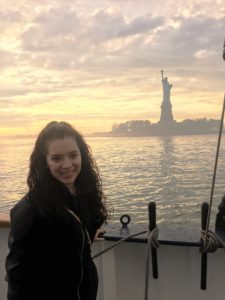 Alondra Castillo
Alondra Castillo
2016 Baylor/MAC Program Full-Tuition Scholarship Recipient
Alondra Castillo, with a 4.0 GPA at MCC, transferred to Baylor University with the Baylor and MAC Program’s collaborative full-tuition scholarship in 2016. She is now majoring in biology pre-med with plans to become a doctor with a specialization in gynecology.
“Seeing my family members deliver their babies and working as a certified nursing assistant at Hillcrest inspired me to pursue gynecology,” Alondra said. “I wasn’t able to directly assist with the labor and delivery, but I did work with the neonatal intensive care unit, and that really sparked an interest in me.”
For Alondra, Baylor wouldn’t have even been a possibility without the full-tuition scholarship. At Baylor, she has the opportunity to take more rigorous courses, volunteer more in the community through the American Medical Student Association and have an increased motivation of achieving her goals.
“My advice for high school seniors is to really know what your passions are,” Alondra said. “You are investing so much of your time, so if you truly love what you are doing then time is going to fly by.”
Alondra also said it is important for prospective college students to participate in volunteer and extracurricular activities to find out what those passions are for you.
James Rauhut
2013 MAC Scholarship Recipient
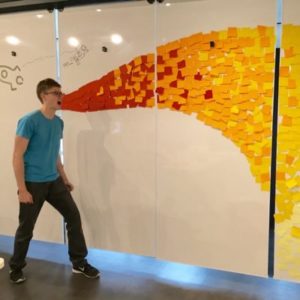 James Rauhut graduated from A. J. Moore Academy in 2011, and he began pursuing his bachelors of business administration in management information systems at University of Texas. In 2013, he was a recipient of the 3rd and 4th year MAC Scholarship. James is currently a designer and front end developer at IBM Design.
James Rauhut graduated from A. J. Moore Academy in 2011, and he began pursuing his bachelors of business administration in management information systems at University of Texas. In 2013, he was a recipient of the 3rd and 4th year MAC Scholarship. James is currently a designer and front end developer at IBM Design.
For many students, such as James, the MAC Scholarship can serve as reassurance or a buffer from taking out student loans.
“The MAC Scholarship allowed me not to worry so much about the financial aid. There’s always this looming debt that causes stress while you’re in college,” James said. “So for each scholarship you are able to receive, it feels like a blessing, and there’s a little less stress in the back of your mind.”
James focused his attention more on making sure he was prepared for a career that would pay off loans. Although he has a business degree, he found his skills were better applied in digital media and web design; so fortunately, paying off debt was not a struggle because he was able to pair his degree with strong, marketable skills.
“The best advice I could give is dedicate your time in college to finding a career that you both love and will pay off that debt instead of trying to be frugal with the financial aid,” James said.
Lisa Byrd
2003 MAC Scholarship Recipient
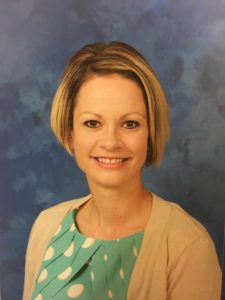 Lisa Byrd is a counselor at Mart Independent School District where she works with many students who would be first time college students. She earned her bachelor’s degree at University of Texas in English after transferring from MCC and receiving the 3rd and 4th year MAC Scholarship in 2003. She later earned her master’s degree from Tarleton.
Lisa Byrd is a counselor at Mart Independent School District where she works with many students who would be first time college students. She earned her bachelor’s degree at University of Texas in English after transferring from MCC and receiving the 3rd and 4th year MAC Scholarship in 2003. She later earned her master’s degree from Tarleton.
“A lot of our kids are first time college students, so it’s crucial to have somebody who can help them make that jump and to give them options,” Lisa said. “The idea is to appreciate all of the kids for what their path might be.”
Lisa comes from a large family where their parents did not attend college or have the ability to pay for a college education. The responsibility of funding college was on Lisa, so scholarships were the difference between whether or not education was a possibility.
At the MAC Scholarship Ceremony, Lisa was able to create a relationship with her donors—Mr. and Mrs. Bernard and Audre Rapoport.
“I didn’t understand at the time as a 20 year old the magnitude of the MAC scholarship and what it meant,” said Lisa. “I started to realize that Mr. Rapoport was actually there at the MAC ceremony. They called me up, and I went to shake his and his wife’s hand. He made a joke about pretty girls going to University of Texas and everyone laughed.”
The transition from the small town of Mart to Austin was not easy for Lisa. She recalled the culture shock of attending classes on top of working in downtown, riding the city bus, learning a new college environment and trying to fit in with her peers.
“I was thinking I don’t belong here, but then I looked up, and I realized I was looking at the Bernard and Audre Rapoport Building,” Lisa said. “So I thought, if he shook my hand and thinks I can do it, then surely I can. Even more than the money, he was a big motivator when he sent me a book and we corresponded at least once a year.”
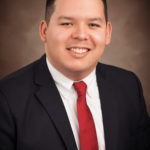 Rolando Rodriguez was raised in Waco, TX, and he graduated with honors from Baylor University with a bachelor of arts in professional writing & rhetoric. He has recently joined Waco Foundation as the MAC & Scholarship Coordinator as an advocate of higher education for all students in McLennan County regardless of financial circumstance. His role with the Foundation is to help McLennan County students with the financial aid process for college.
Rolando Rodriguez was raised in Waco, TX, and he graduated with honors from Baylor University with a bachelor of arts in professional writing & rhetoric. He has recently joined Waco Foundation as the MAC & Scholarship Coordinator as an advocate of higher education for all students in McLennan County regardless of financial circumstance. His role with the Foundation is to help McLennan County students with the financial aid process for college.
By Brittany Fitz-Chapman
This past month, Prosper Waco teamed up with Waco Foundation and Cooper Foundation to bring Marcos Marquez, a results-based accountability (RBA) expert, to Waco to provide insight into how data can help drive decision-making. Result-based accountability is a disciplined method of thinking and taking action to help organizations get from talk to action quickly.
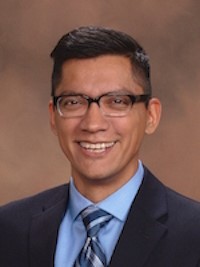 Marcos holds over a decade of experience in leading communities to using data effectively and ultimately achieving improved outcomes. Prior to joining Clear Impact, he served as the Results Manager for the United Way of San Antonio and Bexar County for its $24 million Eastside Promise Neighborhood and $7 million Annie E. Casey Foundation/Dual Generation initiatives. Currently, Marcos serves as the Clear Impact project lead to the Annie E. Casey Foundation for its performance management system through the Research, Evaluation, Evidence and Data unit. Also, he is project lead for the State of Texas Department of Family and Protective Services for its Home Visiting program.
Marcos holds over a decade of experience in leading communities to using data effectively and ultimately achieving improved outcomes. Prior to joining Clear Impact, he served as the Results Manager for the United Way of San Antonio and Bexar County for its $24 million Eastside Promise Neighborhood and $7 million Annie E. Casey Foundation/Dual Generation initiatives. Currently, Marcos serves as the Clear Impact project lead to the Annie E. Casey Foundation for its performance management system through the Research, Evaluation, Evidence and Data unit. Also, he is project lead for the State of Texas Department of Family and Protective Services for its Home Visiting program.
After learning all that Marcos has been involved with, we couldn’t wait to get him to Waco! Marcos visited Waco from March 15 to 17 to discuss results-based accountability and previewing Clear Impact’s results scorecard with local organizations! While he was in town, Marcos met with more than 20 nonprofit organizations, as well as city staff and our local foundations.
Building on his experience with large collective impact initiatives, he also conducted an evaluation of the Prosper Waco backbone organization and the progress of the initiative. While we participated in our own deep-dive session with this RBA guru, we talked about how we need to continue to communicate what is going on within the initiative and focus on building the data capacity of our local organizations.
One way the Prosper Waco backbone aims to build the capacity of local organizations is through the Clear Impact Scorecard—a community tool which is used to help our local organizations collect data and track outcomes. The tool provides an abundance of benefits, such as:
- a user-friendly cloud-based system to track measures of interest
- the ability to create visuals to aid in storytelling
- a way to track aggregated performance measures against the broader community-level indicators of change.
I have been meeting with various organizations across the community to get them connected to this data tool, but we know there are still organizations out there who want to learn more about the RBA process, Clear Impact and the scorecard! If you’re reading this and thinking I could use a system to help with tracking outcomes for my organization or Results-Based Accountability is the exact model we need to be using in our organization, I am your go-to person. Contact me to set a meeting time to sit down and talk about your org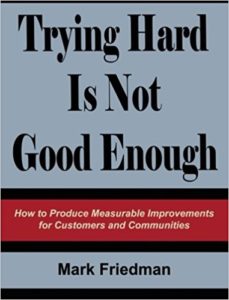 anization’s data and how the scorecard can be a tool for you. My email address is [email protected] or you can call her by dialing 741-0081.
anization’s data and how the scorecard can be a tool for you. My email address is [email protected] or you can call her by dialing 741-0081.
In the meantime, you can check out the book Trying Hard is Not Good Enough by Mark Friedman. The book discusses results-based accountability and how it can be used to improve quality of life in communities, cities, states and nations! If you read the book, let us know your thoughts by tweeting us at @ProsperWaco and using #Prosper254!
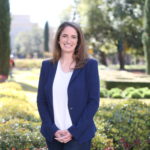
Brittany Fitz-Chapman works at Prosper Waco as the Director of Data and Research. She is a graduate of Baylor University. She holds two master’s degrees and is pursuing her PhD in Sociology at Baylor. She has engaged in community research in Waco and has published professional articles about what makes communities strong. She enjoys exploring Waco with her husband and their two puppies!
The Act Locally Waco blog publishes posts with a connection to these aspirations for Waco. If you are interested in writing for the Act Locally Waco Blog, please email [email protected] for more information.
By Erin Payseur
Trump. Ferguson. Gay marriage. Planned Parenthood. Immigration. National Debt. Living Wage. Religion. Politics. Do you cringe when these topics come up? Do these words automatically bring to mind the same old heated sound bites we’ve heard over and over? For some of us, hot topics like these create a visceral emotional response that seems to yell & scream at us, “No, don’t go there. You better not open that can of worms! That’s too heated of a topic. That’s too sensitive. No one wins in these conversations.” Sometimes, I wish I could heed those voices. Sometimes, I wish I could opt out of the conversations. I would much rather avoid the conflict and the messiness of conversations about which I know others will disagree. After all, who likes conflict?
No matter how much those voices in me say don’t bring it up, though, truth be told, I sense a calling to talk about these issues. As a student affairs practitioner, I sense the need to guide students in making meaning of the world and to understand why these issues provoke such strong responses from all of us. I sense the need to give them courage to enter the conversation instead of run from it, to engage instead of retreating in silence. While these issues are sensitive and controversial, they are also vitally important in terms of who we want to be as a society and how we choose to live with one another in community. If we leave them to the pundits, will we solve the problems? Will we find ways forward together?
Make no mistake, engaging in this kind of work is often a messy process. It means being willing to have the hard conversations. It means being willing to listen and to love the other. It means celebrating moral courage and conviction, even in those with whom we may disagree. For my students, though, I want to give them skills to have these conversations – to go beyond the surface of the sound bites, to understand & respect multiple viewpoints, and to truly connect with others across difference to make our world a better place.
I don’t just want that for my students, though, I want that for all of us. I want it for my church, my neighborhood, my city. I want that for myself, to have the courage and conviction to listen and to learn and to love others well.
This is why I am so excited about the upcoming Civic Life Summit we are hosting in Waco. We are creating space to learn together how to have these kinds of conversations, how to engage when it is not easy, how we can talk about tough issues respectfully and identify ways to work together in community and to be community together.
If you share that desire for something better, come join us! You’ll see examples of a better kind of conversation across difference, and you will leave with tools and ideas for being a part of changing the conversation in your community.
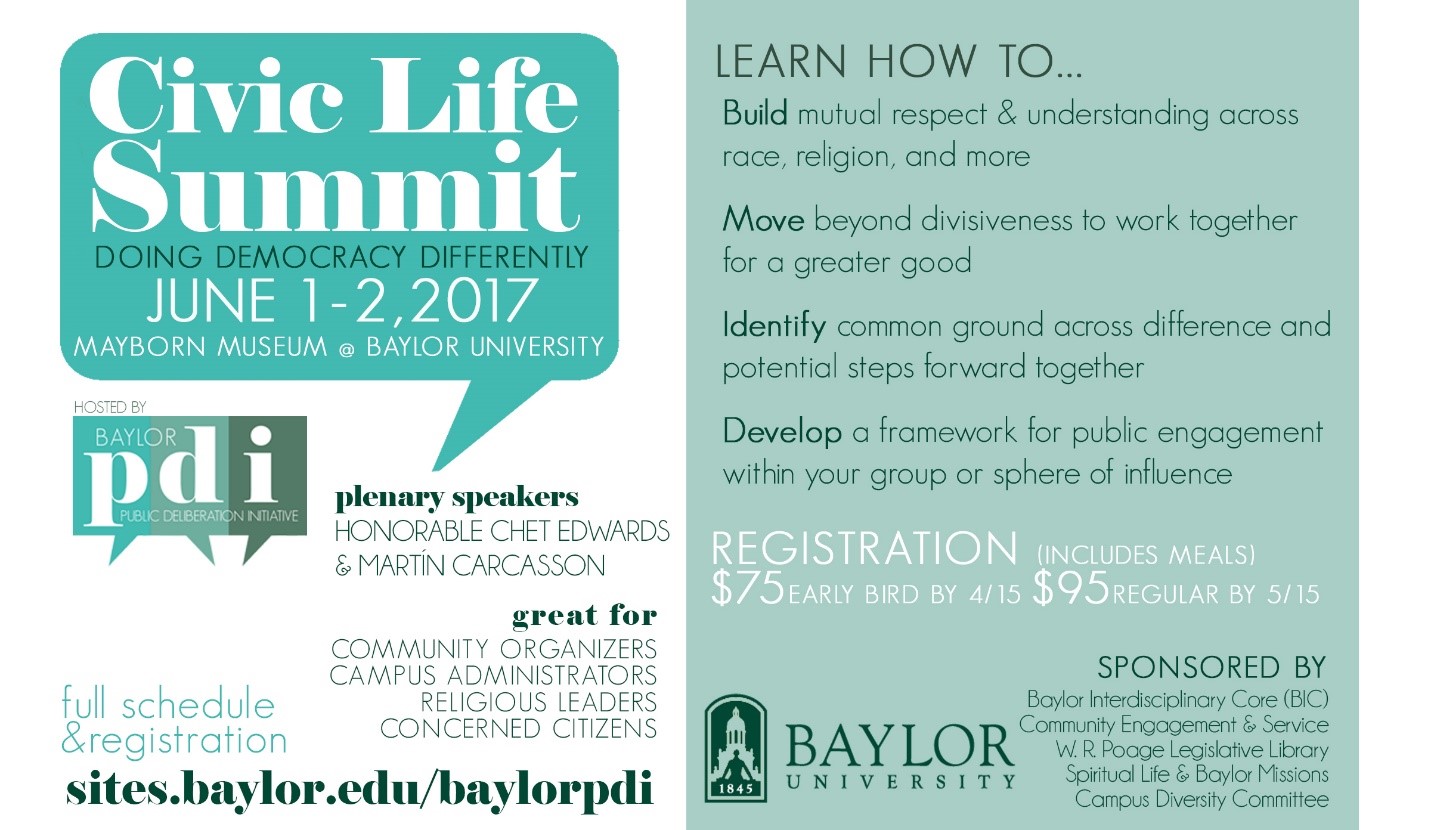
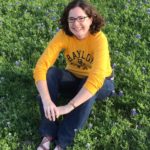 Erin Payseur is the Associate Director of Civic Learning Initiatives at Baylor University. She has over ten years of experience in civic engagement and higher education. As part of the Office of Community Engagement & Service, she develops sustainable frameworks civic learning initiatives to guide students in considering their roles as leaders and citizens. She has authored several articles and presented nationally on civic engagement, service, and leadership. She has a B.A. degree in Religion/ Philosophy from Presbyterian College and a M.Ed. in Higher Education & Student Affairs from the University of South Carolina. Erin is a co-founder of Baylor’s Public Deliberation Initiative and is a current fellow with the Kettering Foundation New Centers for Public Deliberation.
Erin Payseur is the Associate Director of Civic Learning Initiatives at Baylor University. She has over ten years of experience in civic engagement and higher education. As part of the Office of Community Engagement & Service, she develops sustainable frameworks civic learning initiatives to guide students in considering their roles as leaders and citizens. She has authored several articles and presented nationally on civic engagement, service, and leadership. She has a B.A. degree in Religion/ Philosophy from Presbyterian College and a M.Ed. in Higher Education & Student Affairs from the University of South Carolina. Erin is a co-founder of Baylor’s Public Deliberation Initiative and is a current fellow with the Kettering Foundation New Centers for Public Deliberation.
The Act Locally Waco blog publishes posts with a connection to these aspirations for Waco. If you are interested in writing for the Act Locally Waco Blog, please email [email protected] for more information.
By Megan Rule
Picture this – a city girl, born and raised, driving around a small town in Texas at 11 p.m. on a Saturday night looking for food but nothing’s open. The town seems to have boarded up at 8 p.m. On a Saturday night? What? How is it possible to go from the city that never sleeps, where there are concerts on Tuesday nights and diners are open 24/7, to a town that’s smack in the center of Texas with only one building that could pass as a skyscraper?
Record scratch… freeze frame…you’re probably wondering how I ended up in this situation.
I’m from Stamford, Conn., which is about 40 minutes outside of Manhattan. All I’ve ever known is the fast-paced city lifestyle, people with places to go and things to do and heels clicking as they rush to get somewhere else. A city where it seems the days are shorter and the hours go by faster. And I go to school in Waco, Texas, which is the complete opposite. Now, I’m probably over-exaggerating a bit. Waco isn’t exactly a one-horse town with tumbleweeds coming through, but the first time I came here that’s how I felt.
The first time I came to Waco to visit the Baylor campus was a culture shock. My mom and I instantly felt that as soon as we left the “Baylor bubble” we were out of place, lost in a town that seemed stuck in the 1970’s. When move-in day came around I was a little scared, this totally wasn’t my environment. And the thought of spending four years in this small town that wasn’t in my element was definitely a fear that was mixed in with the moving in nerves.
Fast-forward almost two years, and I’m finishing up my sophomore year of school happier than ever. This “small town” has come to be a town that I call home. It’s my home away from home; it somehow found a way to grab a hold of my heart. This city girl at heart found a way to enjoy the small town in Texas and make the most out of everything, finding adventure around the corner.
Waco is a really cool town. Waco is what you make of it. When your attitude is positive, it’s easier for the outcome to be positive as well.
Sure, it’s not as big as my home but it’s got its own quirks that make it so cool. Halfway through the summer I find myself wanting to come back and pick up my adventures where I left off. The thing about Waco is that everyone here is so different; the people here make the town. And because the people make the town, the people know different things about the town. If I hang out with a different group of people every night of the week, I’ll end up doing seven completely different things. From hidden spots of beauty to hole-in-the-wall restaurants to quirky thrift stores, everyone has made something completely different out of Waco so that there’s something new to find around every corner. Whenever it feels like I’ve exhausted all there is to do, someone new opens my eyes.
Waco isn’t New York City, Waco isn’t Chicago and Waco isn’t Los Angeles because Waco is Waco. Sure, there may not be concerts on random weeknights and it may be hard to find a restaurant open past 8 p.m., or anything open on a Sunday, but that’s alright because it’s a change I’ve learned to embrace. Change makes a person grow, and if it weren’t for living in the Waco culture the past few years, I wouldn’t be who I am now.
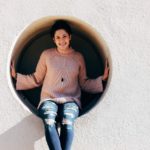 Megan Rule is a sophomore at Baylor University pursuing a major in journalism and a minor in Business Administration and Spanish. She is on the Baylor Cross Country and Track team and is a staff writer for the Baylor Lariat. In addition to running and writing, she enjoys spending time with her dog and family.
Megan Rule is a sophomore at Baylor University pursuing a major in journalism and a minor in Business Administration and Spanish. She is on the Baylor Cross Country and Track team and is a staff writer for the Baylor Lariat. In addition to running and writing, she enjoys spending time with her dog and family.
The Act Locally Waco blog publishes posts with a connection to these aspirations for Waco. If you are interested in writing for the Act Locally Waco Blog, please email [email protected] for more information.
By Madison Albee
Transitioning from high school to college is challenging for many, especially if you are the first one in your family to pursue higher education. MCC wants to see students excel during that transition and help them achieve their goals. Two ways students can accomplish this through MCC are with High School Pathways and the First Generation Scholars Program.
High School Pathways
High school students now have the chance to get their feet wet in taking college courses, and they can stay ahead of the game once they transfer to MCC or the four-year college of their choice. MCC’s High School Pathways program allows students to enroll in college-level courses while still in high school. Students may enroll in academic courses, which typically apply toward a bachelor’s degree, or workforce courses, which provide training for a particular profession.
High School Pathways provides many advantages for students getting ready to go to college. “Pathways students have experienced college-level work and interacted with college professors prior to high school graduation. That experience can make the transition to full-time college student much less stressful,” said Program Director of High School Pathways Londa Carriveau. “The Pathways students who attend classes on the MCC campus benefit even more since they have been exposed to a larger campus, taken classes with students of varying backgrounds and ages, and handled practical matters such as an ID card and parking permit. In addition, the college credit hours earned in high school can save students money and help them either to graduate college early or to carry a lighter course load each semester.”
First Generation Scholars
If you are the first person in your family to attend college, then you have the opportunity to become a First Generation Scholar at MCC. Twelve to fifteen students are chosen each year to receive a $5000 scholarship to go towards their education.
First Generation Scholars also are presented with many opportunities during their time at MCC. They are able to experience campus enrichment activities that are only available to First Generation Scholars, and they have the chance to make presentations on and off campus. First Generation Scholars also volunteer on campus and in the community. They build leadership skills by mentoring local high school students, and they usually take a trip outside of Waco at least once a year for cultural enrichment.
Summer Transition Enrichment Program (STEP) is a summer course only for students in the First Generation program. This gives students the chance to meet other scholars and learn information that helps with the high school to college transition such as study skills, time management, personal finance and other life skills.
If you know of a high school student looking to pursue higher education, please encourage them to look into steps they can take now to achieve that goal such as MCC’s High School Pathways or the First Generation Scholars Program. To learn more information about High School Pathways you can send an email to [email protected], or call 254-299-8937. For more information about First Generation Scholars email [email protected], or call 254-299-8597.
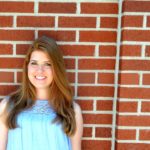 Madison Albee is a senior at Baylor University from Fort Worth, Texas. She is studying journalism/public relations with a concentration in marketing and is graduating this coming May. Currently Madison works for MCC as a public relations intern in the marketing and communications department. She is also the public relations assistant for Luca Magazine.
Madison Albee is a senior at Baylor University from Fort Worth, Texas. She is studying journalism/public relations with a concentration in marketing and is graduating this coming May. Currently Madison works for MCC as a public relations intern in the marketing and communications department. She is also the public relations assistant for Luca Magazine.
The Act Locally Waco blog publishes posts with a connection to these aspirations for Waco. If you are interested in writing for the Act Locally Waco Blog, please email [email protected] for more information.
by Leah Gorham, MAMFC, LPC
Welcome to the second part of the Child Abuse Awareness Trilogy Blog. As I mentioned last week, Dr. Karyn Purvis developed the idea of empowering, connecting, and correcting children to increase attachment and cohesion in families. She called it TBRI® (Trust-Based Relational Intervention®).
Having a newborn baby can be one of the most stressful times in a parent’s life – especially for new parents! The late nights, early morning feedings, and excessive crying could easily make anyone feel overwhelmed. Dr. Purvis believed that you can never hold an infant too much during the first year of their life. This is a prime development attachment stage during which a child is learning to determine who they can connect with and have a trusted relationship with. We are all longing for the same things – we need to know that we matter, we can connect with others, and we can feel safe. In order for our physical needs to be met, we need to connect with others. Connecting is about building a relationship or a bond with someone. It’s similar to when you connect to Wi-Fi, which allows you to connect to the World Wide Web. When you’re connected to your child, you get all the benefits of things they experience.
So how do we connect with our children? Connecting with a 2 year-old will look different than connecting with a 12 year-old, but there will be some overlap. One way to connect is through positive, healthy touch. A high-five, hug, pat on the back, foot massage, fist bump – whatever makes you and your child feel safe.
Lack of appropriate eye contact is a common challenge in our society. Often our heads are down while we’re scrolling through Facebook, Instagram, or other social media on our phones instead of actually maintaining good eye contact with others. Instead, we need to set our phones aside and look our children in the eyes. This will reinforce the message that they are special and what they have to say is valuable and important. I know I’m guilty of not putting my phone down, yet it is something I’m striving to be better at by looking the person I am with in the eyes.
Along with the eye contact, proximity to the child is important. It’s hard to hear what they are saying when we’re not even in the same room. How many times have we been upset by a child yelling at us from across the house? Rather, move closer to them by sitting near or next to them. It becomes easier to be open and honest with someone who is looking at my eyes, sitting near me, and holding my hand.
A great way to build the connection with your child is doing what they like to do or striving to do things together. I recently read an article about how many parents say “no” when they could say “yes.” Here’s an example for you. After a long day of work, a parent comes home and settles down on the couch. As the parent is scrolling on their phone, a kid asks if he can ride his skateboard outside. The parent immediately reacts with a “no” because it would require them to get off the couch. Instead, the parent could say “yes” and put the phone down in order to go outside with the child. While riding a skateboard is not for everyone (definitely not with my balance), being outside with the child and encouraging him is a great way for the parent to connect with their child. I’m a big advocate of family board games or card games that allow for conversations, practice in the art of winning/losing well, and non-tech time.
Often times, we don’t take care of ourselves. As the flight attendant always tells us on airplanes, we have to put on the oxygen mask first. THEN we can help others with their oxygen masks. The rationale is that we aren’t very helpful to others when we’re lacking oxygen ourselves. The same is true for nurturing. We must nurture ourselves through savoring a cup of coffee, our daily workout at the gym, connecting with our significant other/spouse/close friend, or through meditating. We must practice self-care. I have found taking walks through nature to be stress relieving as I’m able to breath in the fresh air. It can look different for each of us, yet the basis is that we must strive to nurture ourselves so we can nurture others. Next week, I’ll finish this blog series with a final blog on correcting.
 Leah Gorham, MAMFC, LPC, is the Team Lead at the STARRY-Waco Counseling office that offers free counseling for children and families. She has been a Kid’s Hope Mentor for the past five years and is currently part of Leadership Waco.
Leah Gorham, MAMFC, LPC, is the Team Lead at the STARRY-Waco Counseling office that offers free counseling for children and families. She has been a Kid’s Hope Mentor for the past five years and is currently part of Leadership Waco.
The Act Locally Waco blog publishes posts with a connection to these aspirations for Waco. If you are interested in writing for the Act Locally Waco Blog, please email [email protected] for more information.
by Leah Gorham, MAMFC, LPC
In early March, a Waco man was arrested for allegedly hitting a child in the face. The story was followed with additional arrests in other instances involving individuals who had sexually abused different children. According to the Children’s Advocacy Centers of Texas, 185 children in the state of Texas become victims of abuse each day. That is a staggering statistic that keeps me wanting to serve and empower more families. April is Child Abuse Awareness and Prevention Month and the Child-Safe Alliance is making efforts to reduce and eventually end all types of child abuse. STARRY is honored to partner with them by providing free counseling for children and families as part of the DFPS STAR program.
Child abuse prevention is a cause that is near and dear to my heart. I work with its victims on a daily basis and have become an advocate for child abuse prevention since I was a child. I remember being in elementary school when I first realized people were capable of hurting others. While some may call it “discipline,” leaving bruises and marks is never okay. Raising kids is difficult when you’re constantly being mom-shamed on social media for letting your kids eat that extra piece of candy. (Mostly because you’re so tired of the constant whining and screaming and all you want is a little peace and quiet!) Besides, we tell ourselves, My parents did that and I turned out okay. But … did we really? The only way to change the next generation is to do a little self-work. And the result could have a HUGE impact in the lives of our children.
What is one way to help families reduce the risk of child abuse and sharpen their parenting skills? I’m glad you asked! Trust-Based Relational Intervention® (TBRI®) is the brainchild of Dr. Karyn Purvis and TCU. From her research, Dr. Purvis found that empowering, connecting, and correcting children can help reduce child abuse and increase attachment and cohesion in families – especially children from hard places. Dr. Purvis published a book called Empowered to Connect, which I highly recommend you read. Over the next three weeks, I’m going to blog about the three principles outlined in the book and how to implement them into your life (with your current family or maybe your future family).
The first principle is empower. We all desire our children to succeed in life through their actions, education, emotions, relationships, etc. Empowerment focuses on using the child’s strengths and fostering a healthy view of self. Power struggles occur in relationships because we all desire to feel in control. Giving your child choices allows him or her to share the control. A word of caution helps set boundaries for the choices. Rather than saying that they can have any kind of snack after school, give them a choices of pretzels, veggie sticks, cheese crackers, or fresh fruit as options for the snack. It will help you keep your sanity and it’ll help you be able to say “yes” to more options. This will also build your child’s confidence in the fact that that they have power and can make good decisions. When kids feel in control of a few things, they are more likely to make better decisions and poor behaviors will likely decrease. There may be underlying issues too, so don’t be afraid to seek counseling for additional support. Next week, I’ll talk more about ways to connect with your child.
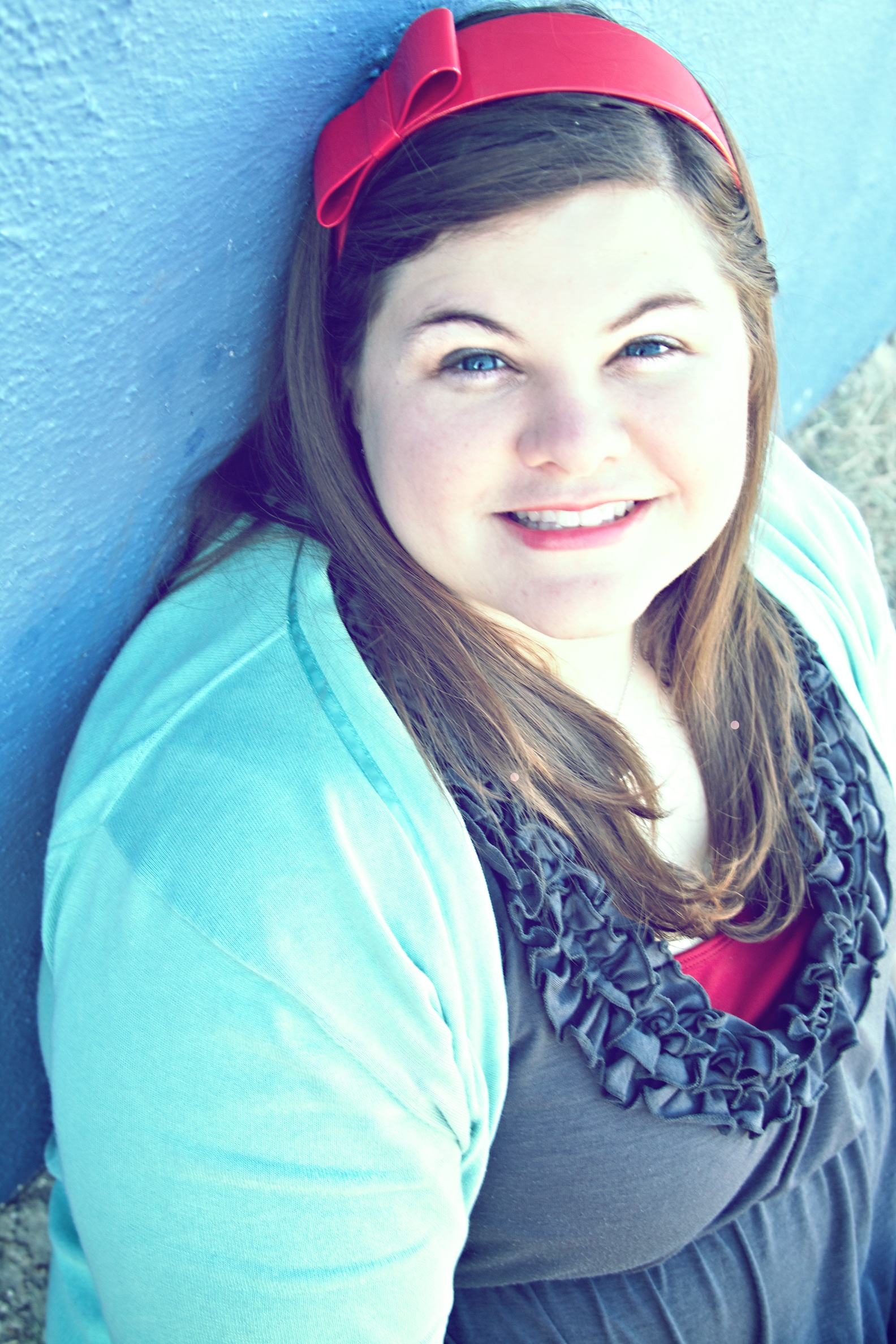 Leah Gorham, MAMFC, LPC, is the Team Lead at the STARRY-Waco Counseling office that offers free counseling for children and families. She has been a Kid’s Hope Mentor for the past five years and is currently part of Leadership Waco.
Leah Gorham, MAMFC, LPC, is the Team Lead at the STARRY-Waco Counseling office that offers free counseling for children and families. She has been a Kid’s Hope Mentor for the past five years and is currently part of Leadership Waco.
The Act Locally Waco blog publishes posts with a connection to these aspirations for Waco. If you are interested in writing for the Act Locally Waco Blog, please email [email protected] for more information.

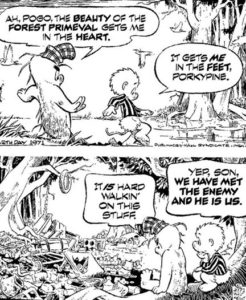 We have met the enemy and he is us.
We have met the enemy and he is us.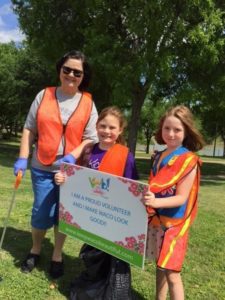 Keep Waco Beautiful
Keep Waco Beautiful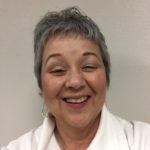 This week’s Act Locally Waco blog post is by Anna Dunbar. Anna is the Operations Administrator for the City of Waco Public Works. She is responsible for informing Waco residents and businesses about recycling and waste reduction opportunities as well as solid waste services in Waco. Her husband is a Baylor professor and her daughter is a graduate student at Baylor University. She is president of the board of Keep Waco Beautiful and is a member of The Central Texas Audubon Society and Northwest Waco Rotary. If you would be interested in writing for the Act Locally Waco blog, please email
This week’s Act Locally Waco blog post is by Anna Dunbar. Anna is the Operations Administrator for the City of Waco Public Works. She is responsible for informing Waco residents and businesses about recycling and waste reduction opportunities as well as solid waste services in Waco. Her husband is a Baylor professor and her daughter is a graduate student at Baylor University. She is president of the board of Keep Waco Beautiful and is a member of The Central Texas Audubon Society and Northwest Waco Rotary. If you would be interested in writing for the Act Locally Waco blog, please email